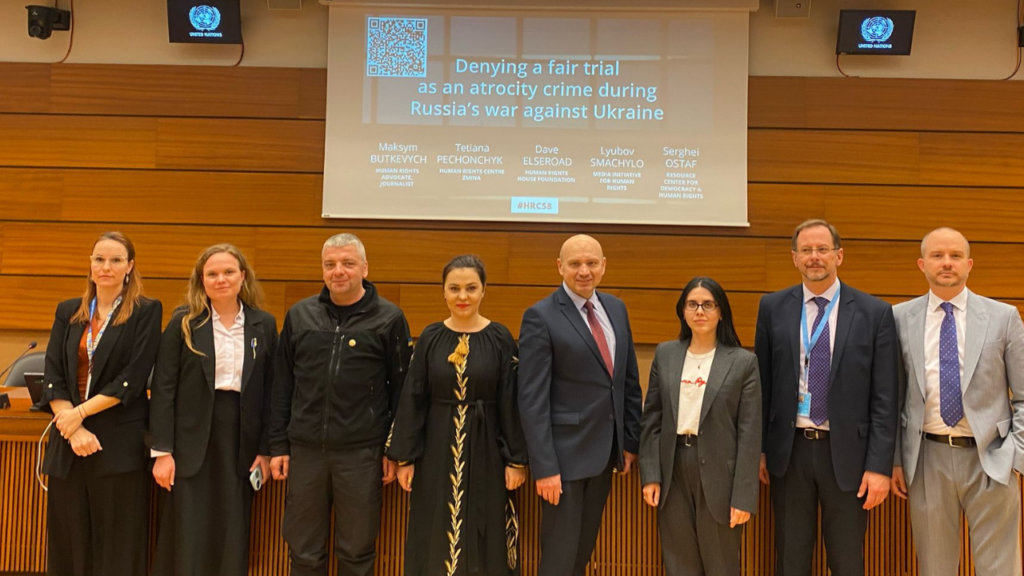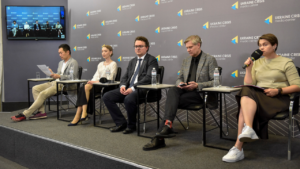Closed Trials and Fake Verdicts: Evidence of Russia’s Judicial System Crimes against Ukrainians Presented in Geneva

Since the onset of Russia’s full-scale invasion, the number of criminal cases against Ukrainian civilians and prisoners of war has significantly increased in Russia and the occupied regions of Ukraine. The Russian authorities systematically deprive Ukrainians of their right to a fair trial, using the judicial system as a tool of repression. This was stated by the Media Initiative for Human Rights (MIHR) during the side event, “Denial of a Fair Trial as a Cruel Crime during Russia’s War against Ukraine.” The event was held on March 21 in Geneva as part of the UN Human Rights Council’s 58th session.
The participants of the discussion included Maksym Butkevych, who spent over two years in Russian captivity; Chair of the Board of the ZMINA Human Rights Center Tetiana Pechonchyk; Head of the Analytical Department at MIHR Liubov Smachylo; and Director of the Democracy and Human Rights Resource Center (Moldova) Serhiy Ostaf. Dave Elseroad moderated the discussion.
At the event, human rights activists presented a study that proves that depriving Ukrainians of their right to a fair trial can be considered a crime against humanity. The research was conducted by the MIHR, ZMINA, the “Hraty” media project, and the “Crimean Process” initiative with the support of the Ministry of Foreign Affairs of the Netherlands.
The event raised the issue of using the court as an instrument of Russia’s policy to oppress ethnic Ukrainians and Crimean Tatars, the denial of a fair trial in the occupied territories; analyzed procedural violations, cases, and verdicts, and discussed the prospects for investigating and prosecuting the deprivation of the right to a fair trial as a flagrant violation of the Geneva Conventions and persecution as a crime against humanity.
The monitors analyzed about 600 criminal cases opened by the Russian Federation against Ukrainians, selected 37 representative cases for detailed study, reviewed over 150 media publications, and analyzed Russian criminal and procedural legislation, international law, and judicial practices related to the deprivation of the right to a fair trial.
It was revealed that Russia deliberately conceals information about court proceedings: hearings are held in closed session, and judicial decisions are not published or are removed from official websites. Monitors found it extremely difficult to gain access to court materials. This is primarily due to the inability to ensure their safety and the secrecy of the judicial processes.
Based on this research, human rights activists are preparing a petition to the International Criminal Court to hold accountable those responsible for systematic violations of Ukrainians’ rights. They emphasize that the practice of fabricating cases, opaque processes, and denial of justice is part of Russia’s policy of repression against Ukrainians and Crimean Tatars.
This research follows the analytical work on politically motivated judicial processes by the Russian Federation against Ukrainians, initiated in 2018 through monitoring of the Crimean occupation courts. In addition, the MIHR has researched the quasi-legal system in the temporarily occupied territories of the Luhansk and Donetsk regions.
Author: Yana Ilkiv, journalist at MIHR






